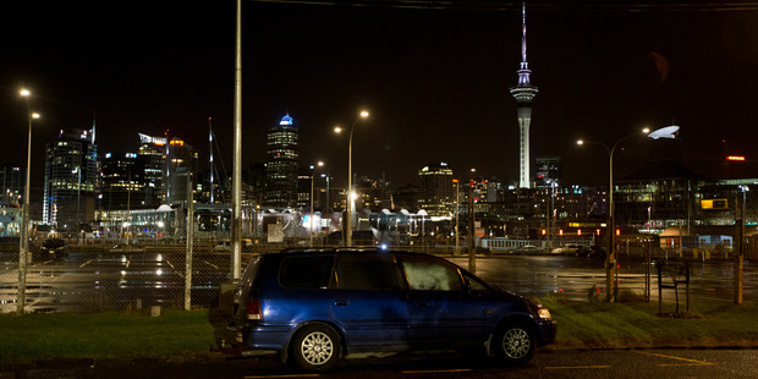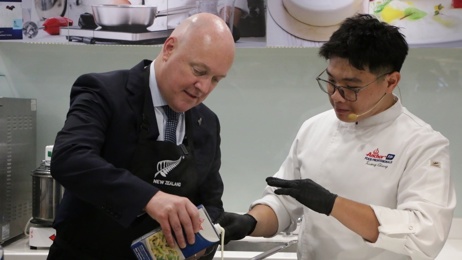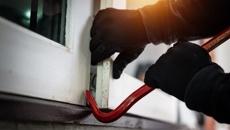
It is being heralded as the solution to Auckland’s housing crisis, but it also outlaws homelessness in some parts of the city. Auckland issues reporter Michael Sergel argues the Unitary Plan won’t be enough on its own to solve the city’s housing problems.
Two months ago we revealed dozens of families and individuals had set up a temporary village at Bruce Pulman Park in south Auckland, near dozens of empty state homes. Our story was picked up by other media and the plight of the people was picked up by charities and volunteers.
The village was illegal and its residents were transient. Some had jobs and young children. Others had lost their jobs and were looking for new ones. Some were escaping abuse in their previous homes. Others were seeking a safe haven from attacks on the street. Some have found homes with the help of agencies and marae. Others continue to live in places like the park, because they have decided it is the safest place to sleep.
Bruce Pulman Park is publicly owned, but is leased out to a self-sustaining trust. It has an on-site lodge and allows people to stay in their motorhomes for $25 a night. Many people also camp in their cars at the park because it has toilet and shower facilities and is safer than other streets and domains around the city. Some are trespassed, but many are not.
The recommended Unitary Plan allows a wide range of activities at the park, including sports, recreation, concerts, events, festivals, markets, fairs, trade fairs, functions, conferences, gatherings, meetings, displays, exhibitions, informal activities and related activities, But the park is not supposed to become a shelter or a slum. The plan allows only 20 "self-contained motorhomes" to be stopped at Bruce Pulman Park on any one night, and limits stays to three consecutive nights or 14 nights for special events. But it bans people camping in cars or vans, or for long periods of time.
Elsewhere in the city, the Unitary Plan maintains restrictions on where people can live and how many people can live in a home. These rules are important to prevent overcrowding and ensure properties are used appropriately. But many people will continue to rent out illegal garages and dwellings or sleep in cars until they can find affordable and accessible accommodation.
The people living in the park told us they wanted homes they could afford to rent, and the agencies working with homeless people say that will require more homes to be built. There is also a growing consensus behind some form of intensification and some form of expansion, to accommodate projected growth.
A growing number of charities and ministries, including the Salvation Army and Lifewise, say passing the recommended Unitary Plan is the most realistic way of allowing those homes to be built. They accept the plan is not perfect, but argue it will add capacity for more than 400,000 extra homes and will allow housing supply to catch up with housing supply.
However, Community Housing Aoteoroa, which represents the social housing sector, says allowing more homes to be built isn't a guarantee they will be built. It says without affordability requirements, there is no guarantee the homes will be affordable. And it says without infrastructure development, there is no guarantee the homes will be accessible.
The panel behind the recommended Unitary Plan admits it won't provide any magic solutions to the housing issues facing the city. It says “the plan sets the stage to enable growth” but “does not create additional homes”. It says that will come down to fast resource consents, sufficient infrastructure and lots of investment from lots of people. In the mean time, some Aucklanders will continue to live wherever they can.
Take your Radio, Podcasts and Music with you









